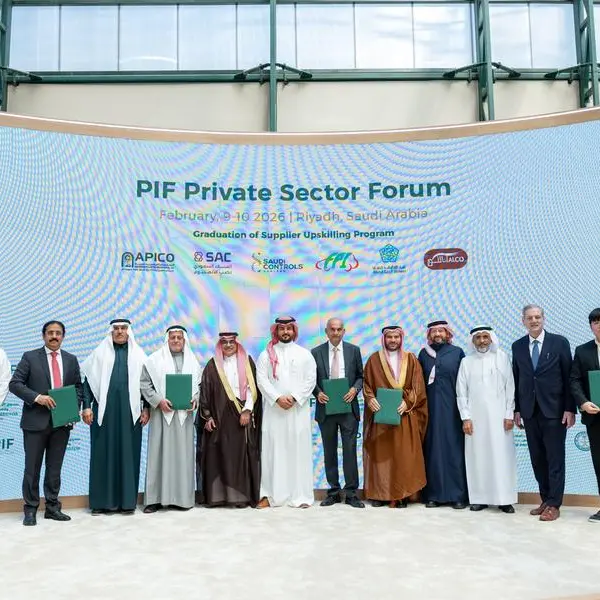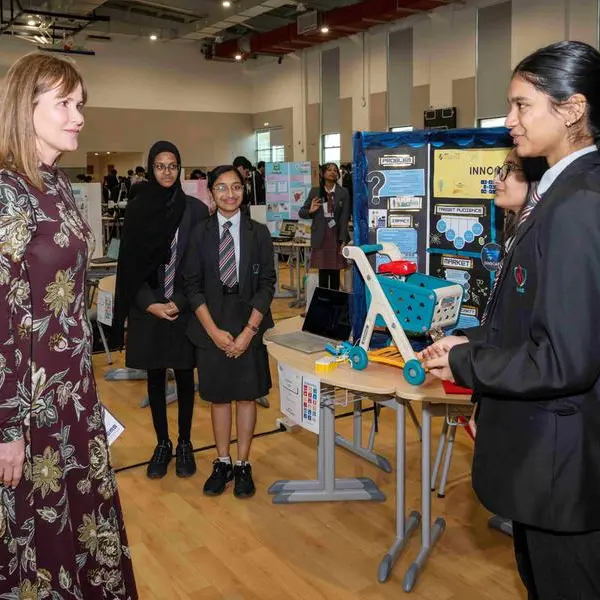PHOTO
Muscat, Oman – Organon, a global healthcare leader with an unwavering commitment to women's health, organized a collaborative workshop with Oman’s Ministry of Health (“MOH”), Directorate General of Primary Health, the Department of Women and Child Health, and the European Parliamentary Forum (“EPF”). This landmark event brought together 30 esteemed members from Organon, MOH and EPF highlighting a collective dedication to discuss the findings of the Family Planning Policy Atlas 2023 (“Atlas”) for Oman.
The “Atlas” offers a comprehensive analysis of 21 countries on aspects such as political leadership on family planning, access to family planning methods, national and international policies, and funding for family planning. The Atlas reveals that while most countries have taken concrete steps at the policy level to ensure access to reproductive health for everyone, more needs to be done to further strengthen the mechanisms in place. This launch holds particular significance as, per the United Nations Population Fund (UNFPA), 60.5% of married Arab women aspire to avoid short-term pregnancies, yet 40% of them do not use safe and effective family planning methods.
During the workshop, the MoH and EPF discussed findings from this advocacy and policy analysis, which provides essential information on the status of family planning programs in Oman. MoH and EPF also agreed to work together to gather more data that will help with future performance and planning to support family planning efforts in the country.
Key Oman Highlights:
- Oman has an official national policy and clear strategy related to family planning ([1]).
- Oman ratified the Convention on the Elimination of all Forms of Discrimination Against Women (“CEDAW”), an international treaty adopted in 1979 by the United Nations General Assembly.[2]
- Married couples in Oman have access to family planning information and methods. Birth spacing services are available through primary healthcare providers and extended health centers throughout Oman and form a crucial part of Maternal and Child Health (MCH) services. Additionally, the MoH provides a wide range of free birth spacing methods to all Omani women who wish to plan their pregnancies.[i]
Dr Jamila Al Abri, Director at the Department of Woman and Child Health remarked, "As the Ministry of Health, we recognize the paramount importance of empowering women and families with knowledge and resources for informed family planning. The workshop serves as a pivotal initiative, fostering a healthier, happier society. By providing comprehensive information and support, we aim to enable Omanis to make well-informed decisions about their family's future. This event reaffirms our commitment to promoting responsible family planning practices, ensuring the well-being of both individuals and our nation as a whole."
Marina Davidashvili, Head of Policy, and Research at the EPF, said, “The opportunity we have today to work closely with the Ministry of Health in Oman is a testament to the deep commitment for family planning programs in the country. We look forward to working together to bring a better understanding of the current situation and finding ways forward to add more, data and allow for knowledge exchange to upscale the overall family planning strategy”.
On the occasion of the workshop, Razan Gharaibeh, UAE and Oman Country Lead at Organon, also commented, “Collaborating closely with Ministry of Health in Oman marked a significant stride in ensuring every woman has access to the resources and information she needs. The workshop is a tribute to our mutual endeavor to utilize the findings of the Family Planning Policy Atlas tool for the betterment of women's health in Oman."
The Broader Impact:
Limited access to family planning methods presents a major obstacle to achieving gender equality, a core objective of the UN Sustainable Development Goals[ii]. This challenge not only harms women's health but also restricts their social and economic empowerment. When women lack control over their reproductive choices, it significantly hinders their ability to pursue education, join the workforce, and make substantial contributions to the economy. This restricted access also profoundly impacts economic productivity, causing nations to lose out on the considerable potential contributions of half their population.
The “Atlas” 2023 has been meticulously developed to influence healthcare policies by actively involving a diverse group of stakeholders, including policymakers, civil society, media, and the public. The “Atlas” 2023 emphasizes the concrete and extensive repercussions of policies, compelling nations to enhance Sexual and Reproductive Health and Rights (“SRHR”) services for the overall improvement of their citizens' well-being.
The global launch of the Contraception Policy Atlas 2023 occurred at the prestigious Women Deliver Conference in Kigali, Rwanda, on 18 July 2023. Future initiatives include regional and national launches, ensuring that the invaluable insights from the” Atlas” are widely disseminated. These efforts aim to foster a global conversation and instigate positive transformations in policy-making approaches.
* This initiative is powered by the European Parliamentary Forum for Sexual and Reproductive Rights (EPF) in partnership with the Arab Institute for Women (AiW), who vetted the data. The “Atlas” was produced in partnership with a group of experts in sexual and reproductive health and rights (see Atlas front page) who helped design the questions and structures. EPF benefitted from the financial support of Organon to undertake original and independent research which is presented in the Atlas. The scope and the content of the Atlas is the sole responsibility of EPF. Data was collected at the beginning of 2022 and validated by the AiW. In May 2023, a consultative process among key stakeholders ensured the inclusion of national views from the partners and contributed towards the improvement and ownership of outcomes.
[1] CCInfoMENA_A3_EN_2023_JUL11.pdf (epfweb.org)
[2] https://www.epfweb.org/sites/default/files/2023-08/CCInfoMENA_A3_EN_2023_JUL11.pdf
[i] https://www.epfweb.org/sites/default/files/2023-08/CCInfoMENA_A3_EN_2023_JUL11.pdf
[ii] https://www.bing.com/search?pglt=43&q=un+sustainable+development+goals&cvid=8ba050fed18e4d5cb7f24cf79b352fc3&gs_lcrp=EgZjaHJvbWUqBAgAEAAyBAgAEAAyBggBEEUYOTIECAIQADIECAMQADIECAQQADIECAUQADIECAYQADIECAcQADIECAgQADIHCAkQRRj8VdIBCTE0Mzc4ajBqMagCALACAA&FORM=ANNAB1&PC=U531




















